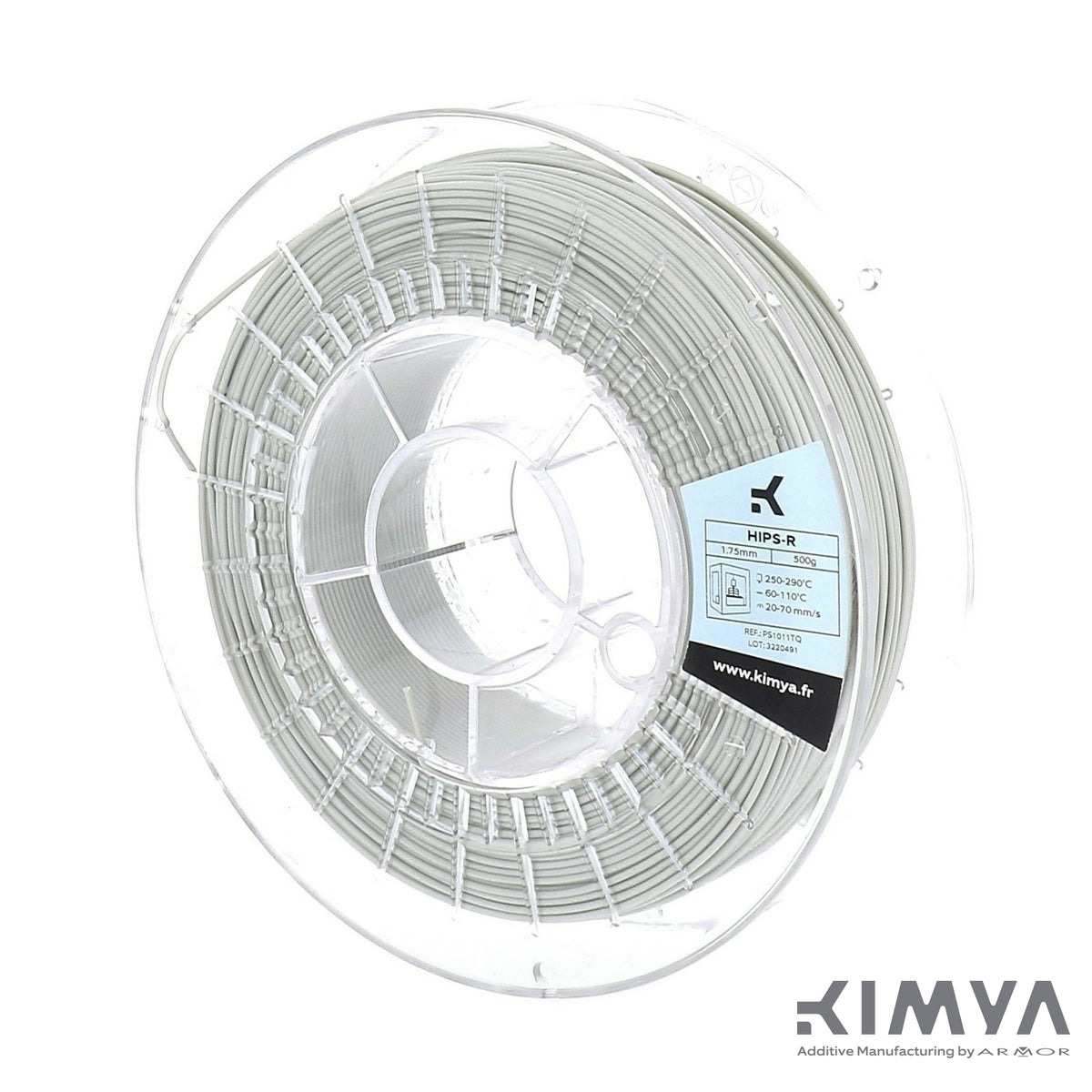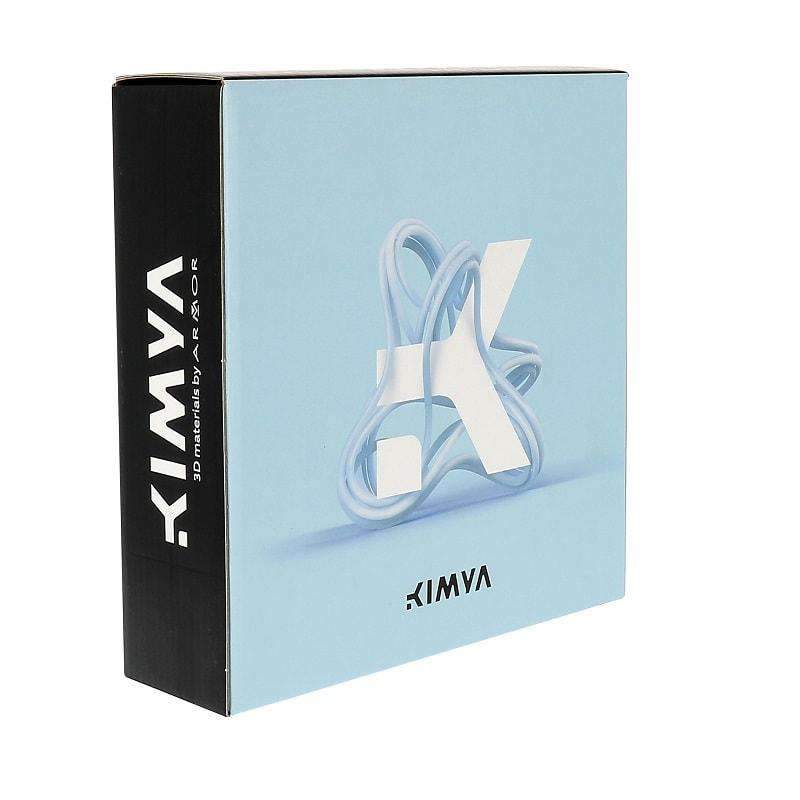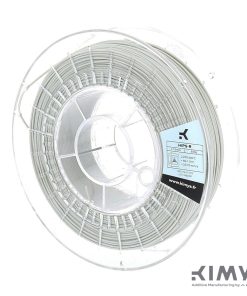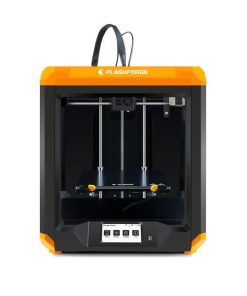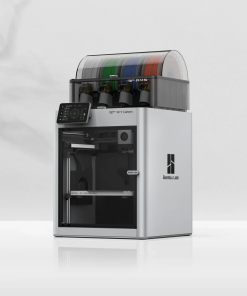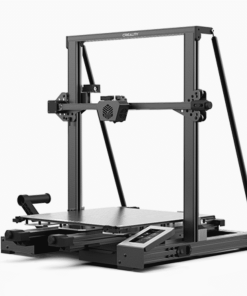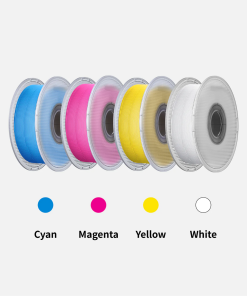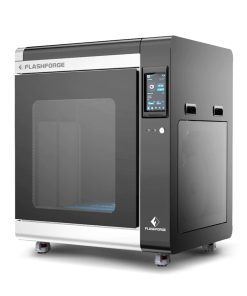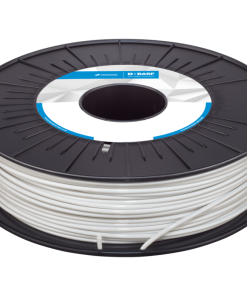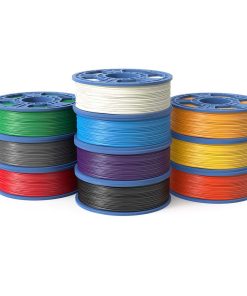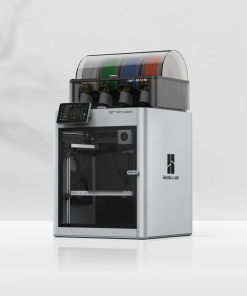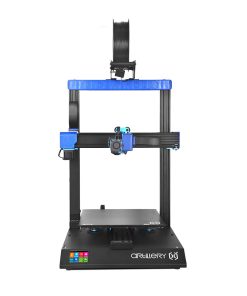KIMYA – HIPS-R Filament – Light Grey Armor Group
$ 22,00 $ 13,20
KIMYA HIPS Filament – 500 grams
The Kimya HIPS-R 3D filament belongs to the styrenic polymer family. This High Impact PolyStyrene (HIPS) is a thermoplastic formulated from recycled materials and which –despite being recycled– boasts good resistance to impact and heat. It is highly impermeable, enabling it to be used in container applications free of any leakage. HIPS-R has another property distinguishing it from all other filaments: its solubility in D-limonene. Indeed, it can be used as a supporting material. It is used in the manufacture of packaging and also household appliances. The Kimya HIPS-R 3D filament has the following properties:
- Good impact resistance
- 100% made from recycled materials
- Soluble in D-Limonene
- Complies with REACH and RoHS standards
- Product Dimensions: 20.7 × 20.5 × 6 cm; 0.8 kg
FILAMENT PROPERTIES
| PROPERTIES | TEST METHODS | VALUES |
|---|---|---|
| Diameter | INS-6712 | 1.75 ± 0.1 mm |
| Density | ISO 1183-1 | 1.03 g/cm3 |
| Moisture rate | INS-6711 | < 1 % |
| Melt flow index (MFI) | ISO 1133-1 (@200°C – 5 kg) | 4.7 – 7.1 g/10min |
| Glass transition temperature (Tg) | ISO 11357-1 DSC (10°C/min – 20-260°C) | 97 °C |
PRINT PARAMETERS AND SPECIMENS DIMENSIONS
| PRINTING DIRECTION | XY |
|---|---|
| Printing Speed | 20-70 mm/s |
| Infill | 100% – rectilinear |
| Infill Angle | 45°/-45° |
| Nozzle Temperature | 250-290°C |
| Bed T° | 60-110°C |
PRINTED SPECIMENS PROPERTIES
| PROPERTIES | TEST METHODS | VALUES | |
|---|---|---|---|
| MECHANICAL PROPERTIES | Tensile modulus | ISO 527-2/5A/50 | 1,273 MPa |
| Tensile Strength | ISO 527-2/5A/50 | 23.7 MPa | |
| Tensile strain at strength | ISO 527-2/5A/50 | 1 % | |
| Tensile Stress at Break | ISO 527-2/5A/50 | 16.7 MPa | |
| Tensile strain at break | ISO 527-2/5A/50 | 11 % | |
| Flexural modulus | ISO 178 | 1,533 MPa | |
| Flexural stress at conventional deflection (3,5% strain)* | ISO 178 | 36.2 MPa | |
| Charpy impact resistance | ISO 179-1/1eA | 7 kJ/m² | |
| Shore Hardness | ISO 868 | 76,6D |
| Note 1 | *According to ISO 178, end of the test at 5% deformation even if there is no specimen break. |
| Note 2 | The data should be considered as indicative values – Properties can be influenced by production conditions. |
| Diameter | 1.75mm, 2.85mm |
|---|---|
| Color | Light Gray |
| Spool Size | 500g |
Professional packing and fast shipping
Due to our longstanding partnership with UPS FedEx DHL and other major global carriers, we are able provide a range of shipping options. Our warehouse staff is highly trained to package your goods exactly as per the specifications we offer. Before shipping the goods are carefully inspected and secured. Everyday we deliver thousands of packages to customers from all over the world. This is a testament to our commitment to be the largest online retailer worldwide. The warehouses and centers for distribution are situated in Europe and the USA.
Orders with more than one item are given processing time for each item.
Before shipping, we will conduct a thorough inspection of the items you've ordered. Currently, most orders are shipped within 48-hours. Expected delivery time is between 3 and 7 days.
Returns
The stock is dynamic and we do not fully manage it because of the fact that multiple stakeholders are involved, including our factory and warehouse. The actual levels of stock can change at any moment. It's possible that the stock may run out after your order has been placed.
The policy is 30 days. If you haven't received the product within 30 days, we are not able to issue a refund or an exchange.
For your item to be returned, it must be unopened and in the same state as you received it in. It must also be in the original packaging.
Related products
3D Printer
3D Printer
3D Printer
3D Printer
3D Printer
3D Printer
3D Printer
